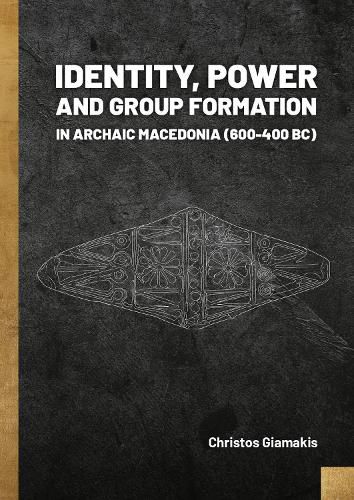Readings Newsletter
Become a Readings Member to make your shopping experience even easier.
Sign in or sign up for free!
You’re not far away from qualifying for FREE standard shipping within Australia
You’ve qualified for FREE standard shipping within Australia
The cart is loading…






The ?rst ever large-scale synthesis on identity and social dynamics across archaic Macedonia (600-400 BC), Christos Giamakis's book provides a detailed narrative exploring the role of power as displayed through material culture in the formation of group identities across the region. Giamakis focuses on data from nine cemeteries in the region combining multiple datasets including grave goods, osteological evidence, burial rites, tomb types and the organisation of the cemetery space in order to explore both inter- and intra-site competition that led to the emergence of di?erent group identities across the region. By doing so, he proposes a new theoretical framework for the study of the region as an alternative to past, ethnicity-based, approaches. Identity, Power and Group Formation in Archaic Macedonia (600-400 BC) encourages the reader to explore the ways in which social inequalities, power dynamics and social interactions all a?ect the potency of speci?c identities at the expense of others. The present monograph will be of great interest to researchers working on ancient Macedonia and the wider ancient Greek world but also to scholars interested in power dynamics and identity formation in other parts of the ancient Mediterranean.
$9.00 standard shipping within Australia
FREE standard shipping within Australia for orders over $100.00
Express & International shipping calculated at checkout
The ?rst ever large-scale synthesis on identity and social dynamics across archaic Macedonia (600-400 BC), Christos Giamakis's book provides a detailed narrative exploring the role of power as displayed through material culture in the formation of group identities across the region. Giamakis focuses on data from nine cemeteries in the region combining multiple datasets including grave goods, osteological evidence, burial rites, tomb types and the organisation of the cemetery space in order to explore both inter- and intra-site competition that led to the emergence of di?erent group identities across the region. By doing so, he proposes a new theoretical framework for the study of the region as an alternative to past, ethnicity-based, approaches. Identity, Power and Group Formation in Archaic Macedonia (600-400 BC) encourages the reader to explore the ways in which social inequalities, power dynamics and social interactions all a?ect the potency of speci?c identities at the expense of others. The present monograph will be of great interest to researchers working on ancient Macedonia and the wider ancient Greek world but also to scholars interested in power dynamics and identity formation in other parts of the ancient Mediterranean.